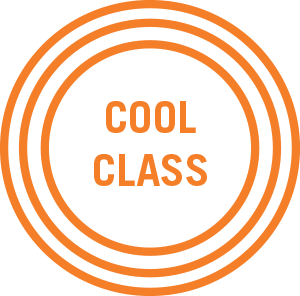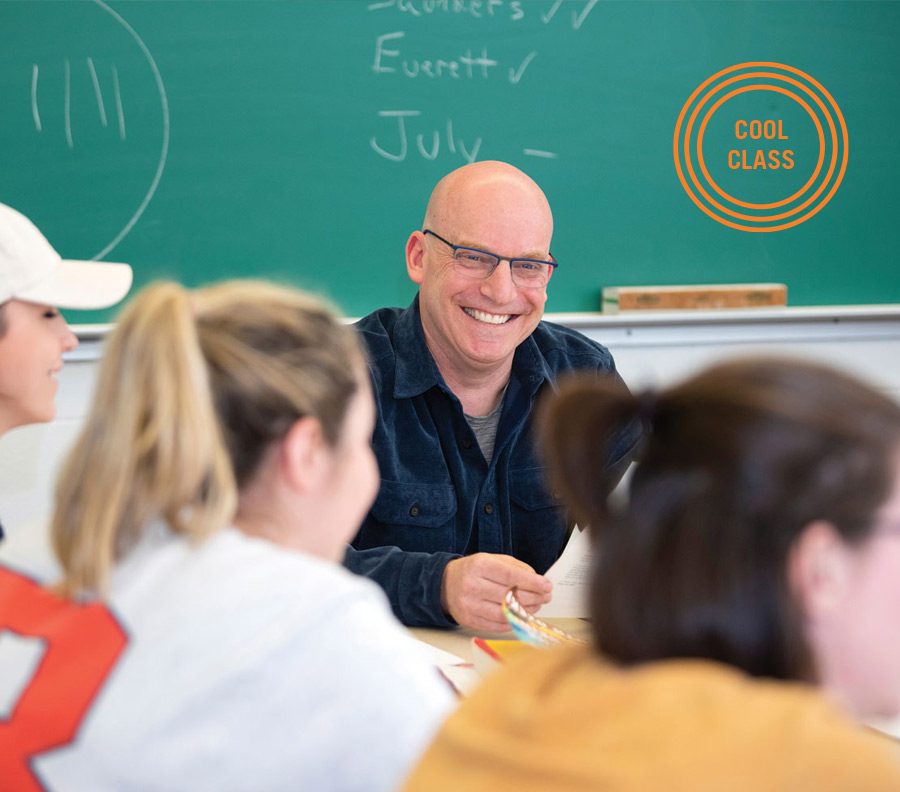


We have so many talented, funny students at Bucknell, and over the years I’ve taught students from theatre, improv and stand-up groups who naturally wrote in a comic mode. But the majority of student fiction is just the opposite: earnest and serious, as if they feel literary writing must be formal or stuffy. That couldn’t be further from the truth. The greatest writers, from Boccaccio and Chaucer to Shakespeare to our own Philip Roth ’54, have always balanced thematic gravity with rich doses of humor — not to mention profanity and bawdiness. Pushing boundaries is a kind of bravery required of great writers, so I wanted to teach a fiction workshop that explores how comedy helps to unearth and deliver truth.
Comedy is one of the richest forms of human connection, and deepens our understanding of the world. We know what successful comedy feels like. But even in my own writing I’ve never understood what makes a joke work. The more you analyze it, the less funny it gets, right? We try to get to the bottom of how comedy not only entertains but also enlightens, and how it can effectively be used as political, philosophical and social commentary.
Students spend the semester reading literature and crafting a portfolio of comic material across genres — personal essays, absurd stories, satirical sketches, parodies, confessions. Each week, we workshop student stories as a class, and the authors return to them again and again to get them working at higher levels. It’s constant feedback and revision — the way professional writers work. As a class, we’ve recognized that the difference between a moment of comedy working or failing can be a single word, a beat in the prose rhythm, even the simplest syntactical choice.
The heart of the course is learning structure, dramatization, revision, a tolerance for criticism and how to put constant pressure on your language. These skills don’t just improve the comedy — they improve all writing.